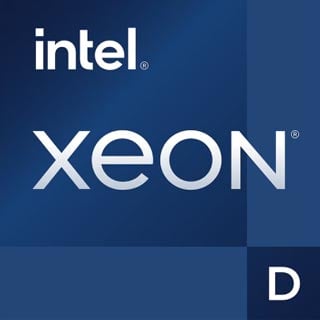Qualcomm Snapdragon 7c+ Gen 3 vs Intel Xeon D-1713NT
Last updated:
CPU comparison with benchmarks

|

|
|
| Qualcomm Snapdragon 7c+ Gen 3 | Intel Xeon D-1713NT | |
CPU comparisonIn this CPU comparison, we compare the Qualcomm Snapdragon 7c+ Gen 3 and the Intel Xeon D-1713NT and use benchmarks to check which processor is faster.
We compare the Qualcomm Snapdragon 7c+ Gen 3 8 core processor released in Q1/2022 with the Intel Xeon D-1713NT which has 4 CPU cores and was introduced in Q1/2022. |
||
| Qualcomm Snapdragon (104) | Family | Intel Xeon D (79) |
| Qualcomm Snapdragon 7c Plus (1) | CPU group | Intel Xeon D-1700 (20) |
| 3 | Generation | 4 |
| Cortex-A78 / Cortex-A55 | Architecture | Ice Lake |
| Mobile | Segment | Desktop / Server |
| Qualcomm Snapdragon 7c Gen 2 | Predecessor | -- |
| -- | Successor | -- |
|
|
||
CPU Cores and Base FrequencyThe Qualcomm Snapdragon 7c+ Gen 3 is a 8 core processor with a clock frequency of 2.40 GHz. The processor can compute 8 threads at the same time. The Intel Xeon D-1713NT clocks with 2.20 GHz (3.50 GHz), has 4 CPU cores and can calculate 8 threads in parallel. |
||
| Qualcomm Snapdragon 7c+ Gen 3 | Characteristic | Intel Xeon D-1713NT |
| 8 | Cores | 4 |
| 8 | Threads | 8 |
| hybrid (big.LITTLE) | Core architecture | normal |
| No | Hyperthreading | Yes |
| No | Overclocking ? | No |
| 2.40 GHz 4x Cortex-A78 |
A-Core | 2.20 GHz (3.50 GHz) 4x Sunny Cove |
| 1.50 GHz 4x Cortex-A55 |
B-Core | -- |
Integrated graphics (iGPU)Graphics (iGPU) integrated into the processor not only enable image output without having to rely on a dedicated graphics solution, but can also efficiently accelerate video playback. |
||
| Qualcomm Adreno 642L | GPU | no iGPU |
| 0.70 GHz | GPU frequency | -- |
| -- | GPU (Turbo) | -- |
| 5 | GPU Generation | -- |
| 6 nm | Technology | |
| 1 | Max. displays | |
| 4 | Compute units | -- |
| 384 | Shader | -- |
| No | Hardware Raytracing | No |
| No | Frame Generation | No |
| 4 GB | Max. GPU Memory | -- |
| 12.0 | DirectX Version | -- |
Hardware codec supportA photo or video codec that is accelerated in hardware can greatly accelerate the working speed of a processor and extend the battery life of notebooks or smartphones when playing videos. |
||
| Qualcomm Adreno 642L | GPU | no iGPU |
| Decode | Codec h265 / HEVC (8 bit) | No |
| Decode | Codec h265 / HEVC (10 bit) | No |
| Decode / Encode | Codec h264 | No |
| Decode | Codec VP9 | No |
| Decode | Codec VP8 | No |
| No | Codec AV1 | No |
| Decode | Codec AVC | No |
| Decode | Codec VC-1 | No |
| Decode / Encode | Codec JPEG | No |
Memory & PCIeUp to 16 GB of memory in a maximum of 2 memory channels is supported by the Qualcomm Snapdragon 7c+ Gen 3, while the Intel Xeon D-1713NT supports a maximum of 256 GB of memory with a maximum memory bandwidth of 38.4 GB/s enabled. |
||
| Qualcomm Snapdragon 7c+ Gen 3 | Characteristic | Intel Xeon D-1713NT |
| LPDDR5-6400, LPDDR4X-4266 | Memory | DDR4-2400 |
| 16 GB | Max. Memory | 256 GB |
| 2 (Dual Channel) | Memory channels | 2 (Dual Channel) |
| 51.2 GB/s | Max. Bandwidth | 38.4 GB/s |
| No | ECC | Yes |
| -- | L2 Cache | 10.00 MB |
| -- | L3 Cache | -- |
| -- | PCIe version | 4.0 |
| -- | PCIe lanes | 16 |
| -- | PCIe Bandwidth | 31.5 GB/s |
Thermal ManagementThe Qualcomm Snapdragon 7c+ Gen 3 has a TDP of --. The TDP of the Intel Xeon D-1713NT is 45 W. System integrators use the TDP of the processor as a guide when dimensioning the cooling solution. |
||
| Qualcomm Snapdragon 7c+ Gen 3 | Characteristic | Intel Xeon D-1713NT |
| -- | TDP (PL1 / PBP) | 45 W |
| -- | TDP (PL2) | -- |
| -- | TDP up | -- |
| -- | TDP down | -- |
| -- | Tjunction max. | -- |
Technical detailsThe Qualcomm Snapdragon 7c+ Gen 3 has 0.00 MB cache and is manufactured in 6 nm. The cache of Intel Xeon D-1713NT is at 10.00 MB. The processor is manufactured in 10 nm. |
||
| Qualcomm Snapdragon 7c+ Gen 3 | Characteristic | Intel Xeon D-1713NT |
| 6 nm | Technology | 10 nm |
| Chiplet | Chip design | Monolithic |
| Armv8-A (64 bit) | Instruction set (ISA) | x86-64 (64 bit) |
| -- | ISA extensions | SSE4.1, SSE4.2, AVX2, AVX-512 |
| -- | Socket | BGA 2227 |
| None | Virtualization | VT-x, VT-x EPT, VT-d |
| No | AES-NI | Yes |
| Android | Operating systems | Windows 10, Linux |
| Q1/2022 | Release date | Q1/2022 |
| -- | Release price | 295 $ |
| show more data | show more data | |
Rate these processors
Geekbench 5, 64bit (Single-Core)
Geekbench 5 is a cross plattform benchmark that heavily uses the systems memory. A fast memory will push the result a lot. The single-core test only uses one CPU core, the amount of cores or hyperthreading ability doesn't count.
|
|
Qualcomm Snapdragon 7c+ Gen 3
8C 8T @ 2.40 GHz |
||
|
|
Intel Xeon D-1713NT
4C 8T @ 3.50 GHz |
||
Geekbench 5, 64bit (Multi-Core)
Geekbench 5 is a cross plattform benchmark that heavily uses the systems memory. A fast memory will push the result a lot. The multi-core test involves all CPU cores and taks a big advantage of hyperthreading.
|
|
Qualcomm Snapdragon 7c+ Gen 3
8C 8T @ 2.40 GHz |
||
|
|
Intel Xeon D-1713NT
4C 8T @ 2.80 GHz |
||
Geekbench 6 (Single-Core)
Geekbench 6 is a benchmark for modern computers, notebooks and smartphones. What is new is an optimized utilization of newer CPU architectures, e.g. based on the big.LITTLE concept and combining CPU cores of different sizes. The single-core benchmark only evaluates the performance of the fastest CPU core, the number of CPU cores in a processor is irrelevant here.
|
|
Qualcomm Snapdragon 7c+ Gen 3
8C 8T @ 2.40 GHz |
||
|
|
Intel Xeon D-1713NT
4C 8T @ 3.50 GHz |
||
Geekbench 6 (Multi-Core)
Geekbench 6 is a benchmark for modern computers, notebooks and smartphones. What is new is an optimized utilization of newer CPU architectures, e.g. based on the big.LITTLE concept and combining CPU cores of different sizes. The multi-core benchmark evaluates the performance of all of the processor's CPU cores. Virtual thread improvements such as AMD SMT or Intel's Hyper-Threading have a positive impact on the benchmark result.
|
|
Qualcomm Snapdragon 7c+ Gen 3
8C 8T @ 2.40 GHz |
||
|
|
Intel Xeon D-1713NT
4C 8T @ 2.80 GHz |
||
Devices using this processor |
|
| Qualcomm Snapdragon 7c+ Gen 3 | Intel Xeon D-1713NT |
| Unknown | Unknown |
Popular comparisons containing this CPUs
back to index


